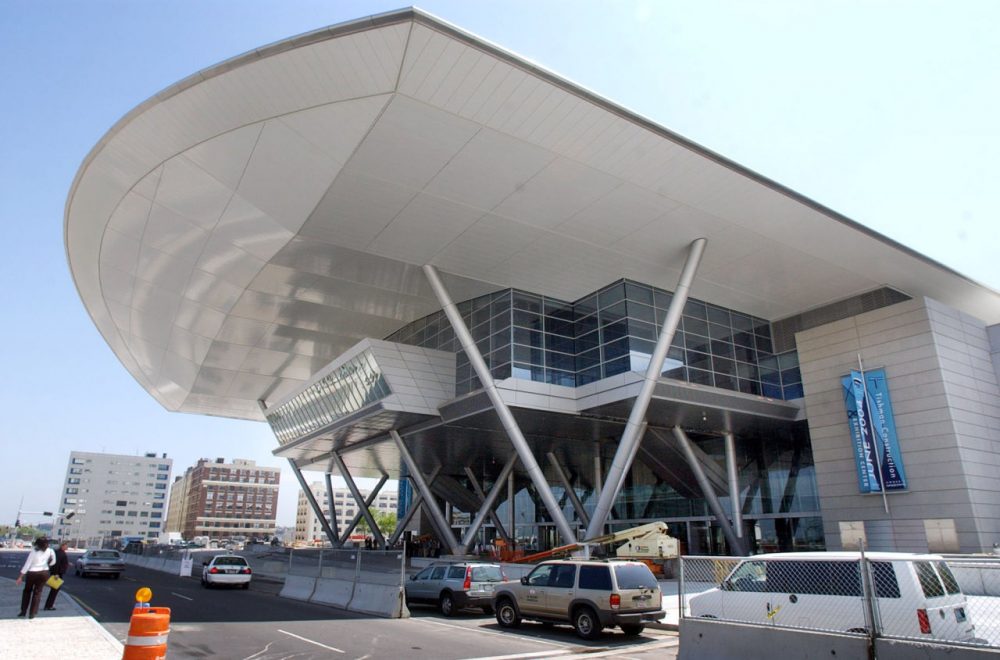Advertisement
Senate Approves $1B Convention Center Expansion

Senate lawmakers authorized a $1 billion expansion of the Boston Convention and Exhibition Center on Thursday night over concerns raised by some members about the financing strategy and its potential to drain tourism dollars from other parts of the state in order to bolster only the capital city's economy.
The bill, which passed the chamber 31-6, would allow the BCEC to double its convention and exhibition space. Supporters say that would allow the city to join the upper echelon of the country's top five convention destinations without raising taxes, as the bonds will be funded from existing tourism taxes.
Sen. Brian Joyce, a Milton Democrat and chair of the Senate's Bonding Committee, said the Senate version changed several elements of the House bill have been criticized in the public by requiring the BCEC to adhere to transparency requirements, and specifically banning the quasi-public agency from using borrowed taxpayer funds to subsidize a private hotel — which he said the Massachusetts Convention Center Authority had not planned to do.
The bill would also reduce the term of the bonds from 40 to 30 years, which Joyce said would reduce the cost by $480 million, and would require environmentally friendly features.
Joyce said the proponents' predictions of 2,100 new permanent jobs and significant economic impact might be overly optimistic, but said he believes the expansion will be a net benefit for the region's economy.
"Do I believe that is somewhat exaggerated? Yes," Joyce said after reading projections of job growth and economic impact. The bill would authorize $1 billion in special obligation borrowing for what lawmakers say would be a roughly 1.3 million square-foot expansion of the South Boston Seaport convention center, which convention center officials say is already the largest building in New England.
Sen. Robert Hedlund, a Weymouth republican, called for the state to support "smarter not bigger" growth and said "the whole thing about getting Boston to the top five, I think is a hard sell," noting other cities have more agreeable climates and vastly larger convention centers than the expansion would create.
Hedlund also said growing the size of the building would increase the annual subsidy the BCEC already uses and questioned using state revenues to boost the state's convention economy when infrastructure is in need of funding.
Sen. Bruce Tarr, a Gloucester republican, vociferously opposed a provision of the bill that he said would allow tourism funds to be used to secure the debt, with the potential for the treasurer in consultation with the secretary of administration and finance to raise Boston hotel room taxes to a maximum of 14 percent if the funding to pay off the debt on the project falls short.
"I think it's an unlikely event," Joyce said after the vote, claiming the security would improve the bond rating. Senate Ways and Means Chairman Stephen Brewer compared the approach to co-signing a loan, and told the News Service if the "doomsday scenario" transpires, the Legislature is "capable of moving in real time."
Tarr said the nearby Tea Party Museum could be in for "round two" if the "taxation without representation" occurs. Tarr described the overall expansion strategy as "if it doesn't first succeed, build it bigger," and said it would put at risk funding tourism attractions around the state.
Brewer said the city is a "cauldron of activity" when a convention is in town.
Senators rejected an amendment offered by Sen. Mark Montigny that would have required the Convention Center Authority to sell the naming rights to the BCEC to provide additional funding for tourism and cultural facilities.
"In comparing the Commonwealth to the rest of the country, our convention centers, facilities and hotel space pale in comparison to what other states can offer," Senate President Therese Murray said in a statement. "This expansion will allow more events, both national and international, to come to Massachusetts and help to firmly place ourselves in a cutting-edge world economy."
The bill has already cleared the House.
Montigny, a New Bedford democrat, and Patricia Jehlen, a Somerville democrat, joined the four republicans in opposing the bill.
Matt Murphy of the State House News Service contributed reporting.